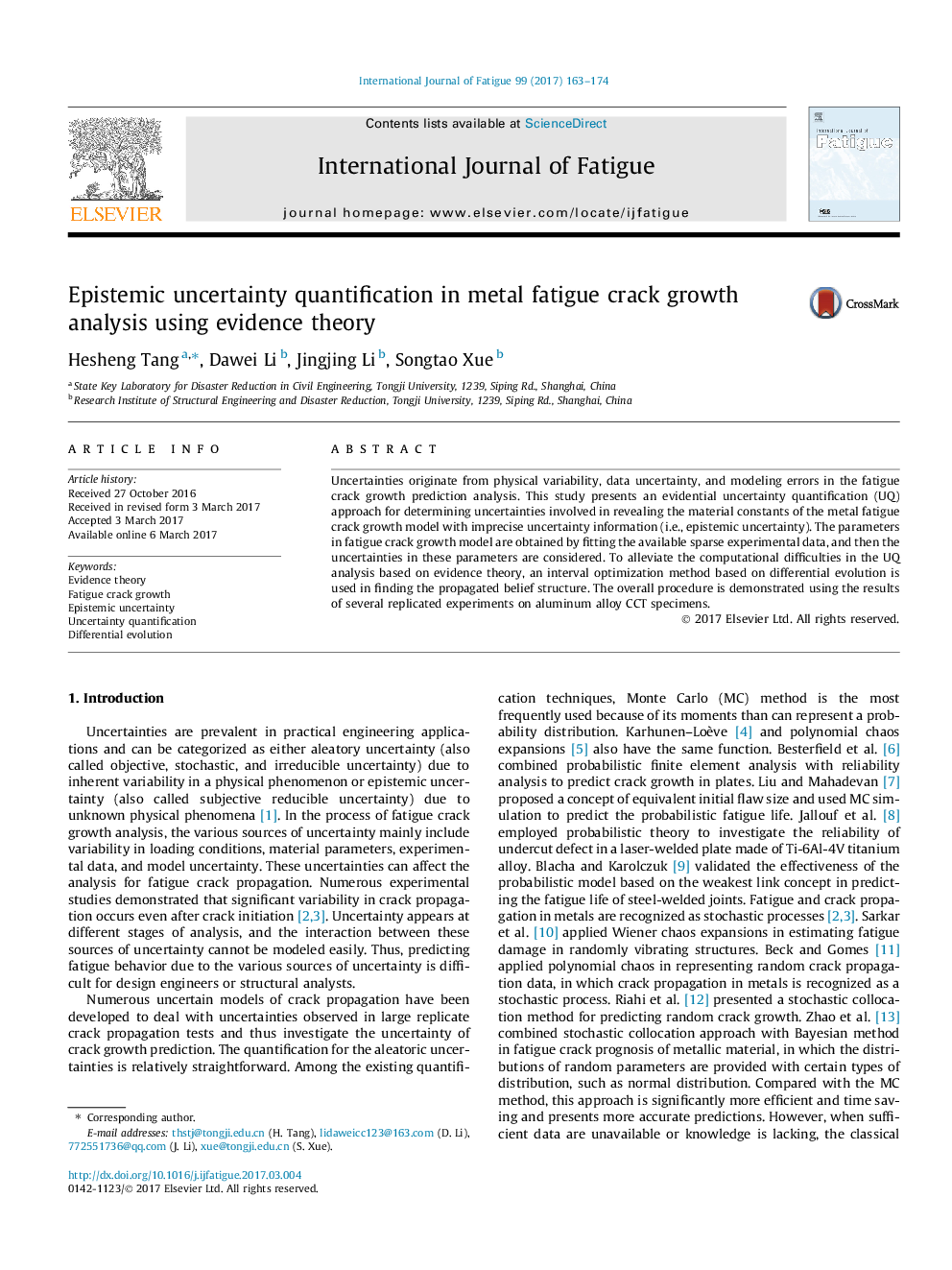| Article ID | Journal | Published Year | Pages | File Type |
|---|---|---|---|---|
| 5015285 | International Journal of Fatigue | 2017 | 12 Pages |
Abstract
Uncertainties originate from physical variability, data uncertainty, and modeling errors in the fatigue crack growth prediction analysis. This study presents an evidential uncertainty quantification (UQ) approach for determining uncertainties involved in revealing the material constants of the metal fatigue crack growth model with imprecise uncertainty information (i.e., epistemic uncertainty). The parameters in fatigue crack growth model are obtained by fitting the available sparse experimental data, and then the uncertainties in these parameters are considered. To alleviate the computational difficulties in the UQ analysis based on evidence theory, an interval optimization method based on differential evolution is used in finding the propagated belief structure. The overall procedure is demonstrated using the results of several replicated experiments on aluminum alloy CCT specimens.
Keywords
Related Topics
Physical Sciences and Engineering
Engineering
Mechanical Engineering
Authors
Hesheng Tang, Dawei Li, Jingjing Li, Songtao Xue,
